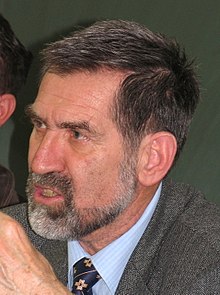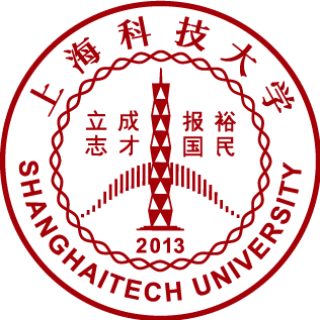
Jure Zupan is a Slovenian physicist and founder of chemomectrics research in Slovenia, known for his work in applications and development of artificial neural networks in chemistry.

Jure Zupan is a Slovenian physicist and founder of chemomectrics research in Slovenia, known for his work in applications and development of artificial neural networks in chemistry.
Zupan was born in Ljubljana, Slovenia in 1943. He studied Physics at the University of Ljubljana and graduated in 1966. He obtained his PhD in Chemistry in 1972. He did his first research on the magnetic properties of solids at the Josef Stefan Institute, Ljubljana (1963–1973). In 1974 he has joined National Institute of Chemistry in Ljubljana to work on Computerized Databases, Chemometrics, and Artificial Intelligence. He did his post doctoral research at ETH Zürich (1975) and at NIH, Bethesda (1978).
Since 1985 he is a Full professor at the University of Ljubljana. He was Visiting Professor at the Arizona State University in Tempe, USA (1982), at the Vrije Universiteit Brussel, Belgium (1988), for 3 consecutive years (each year for three months) at the Technical University Munich, Germany (1990–1992), and at the University Rovira i Virgili, Tarragona, Spain (1995). After 1988 his research focused to the field of Artificial Neural Networks. He is now mostly interested in the multi-dimensional data representation and context extraction from large assembles of multi-dimensional data. He is member of the European Academy of Science (Salzburg) and member of the Engineering Academy of Slovenia.
Zupan is author and editor of 10 books and monographs and has co-authored more than 200 articles. With Johann Gasteiger he co-authored Neural Networks in Chemistry and Drug Design. [1] The book received more than 500 citations and was nominated the book of the month in 1993.[ citation needed ]

The University of Ljubljana, often referred to as UL, is the oldest and largest university in Slovenia. It has approximately 39,000 enrolled students.

The School of Computer Science (SCS) at Carnegie Mellon University in Pittsburgh, Pennsylvania, US is a school for computer science established in 1988. It has been consistently ranked among the top computer science programs over the decades. As of 2022 U.S. News & World Report ranks the graduate program as tied for second with Stanford University and University of California, Berkeley. It is ranked second in the United States on Computer Science Open Rankings, which combines scores from multiple independent rankings.

Geoffrey Everest Hinton is a British-Canadian cognitive psychologist and computer scientist, most noted for his work on artificial neural networks. Since 2013, he has divided his time working for Google and the University of Toronto. In 2017, he co-founded and became the Chief Scientific Advisor of the Vector Institute in Toronto.
The Jožef Stefan Institute is the largest research institute in Slovenia. The main research areas are physics, chemistry, molecular biology, biotechnology, information technologies, reactor physics, energy and environment. At the beginning of 2013 the institute had 962 employees, of whom 404 were PhD scientists.
Clyde Lee Giles is an American computer scientist and the David Reese Professor at the College of Information Sciences and Technology at the Pennsylvania State University. He is also Graduate Faculty Professor of Computer Science and Engineering, Courtesy Professor of Supply Chain and Information Systems, and Director of the Intelligent Systems Research Laboratory. He was Interim Associate Dean of Research. His graduate degrees are from the University of Michigan and the University of Arizona and his undergraduate degrees are from Rhodes College and the University of Tennessee. His PhD is in optical sciences with advisor Harrison H. Barrett. His academic genealogy includes two Nobel laureates, Arnold Sommerfeld and prominent mathematicians.

Sankar Kumar Pal is a computer scientist and former director of the Indian Statistical Institute, Kolkata. He is a computer scientist with an international reputation on fuzzy neural network, soft computing, and machine intelligence. He founded the Machine Intelligence Unit in 1993, and the Center for Soft Computing Research: A National Facility in 2004, both at the ISI. He is the founder president of the Indian National Academy of Engineering, Kolkata Chapter.

Robert Blinc was a prominent Slovene physicist a full professor of physics and, with more than 650 articles in prestigious international journals and two extensive monographs published abroad, a highly regarded and quoted researcher in condensed matter physics.
Davorin Dolar was a Slovenian chemist at the University of Ljubljana. He was a physical chemist who studied polyelectrolyte solutions. He is regarded as a founder of modern physical chemistry teaching in Slovenia. He was a member of the Slovenian Academy of Sciences and Arts.

Anastasios (Tas) Venetsanopoulos was a professor of electrical and computer engineering at Toronto Metropolitan University in Toronto, Ontario and a Professor Emeritus with the Edward S. Rogers Department of Electrical and Computer Engineering at the University of Toronto. In October 2006, Professor Venetsanopoulos joined what was then Ryerson University and served as the Founding Vice-president of Research and Innovation. His portfolio included oversight of the university's international activities, research ethics, Office of Research Services, and Office of Innovation and Commercialization. He retired from that position in 2010, but remained a distinguished advisor to the role. Tas Venetsanopoulos continued to actively supervise his research group at the University of Toronto, and was a highly sought-after consultant throughout his career.
Pierre Baldi is a distinguished professor of computer science at University of California Irvine and the director of its Institute for Genomics and Bioinformatics.

Yann André LeCun is a French computer scientist working primarily in the fields of machine learning, computer vision, mobile robotics and computational neuroscience. He is the Silver Professor of the Courant Institute of Mathematical Sciences at New York University and Vice-President, Chief AI Scientist at Meta.

Dimitri Panteli Bertsekas is an applied mathematician, electrical engineer, and computer scientist, a McAfee Professor at the Department of Electrical Engineering and Computer Science in School of Engineering at the Massachusetts Institute of Technology (MIT), Cambridge, Massachusetts, and also a Fulton Professor of Computational Decision Making at Arizona State University, Tempe.
Anuška Ferligoj is a Slovenian mathematician, born August 19, 1947 in Ljubljana, Slovenia, whose specialty is statistics and network analysis. Her specific interests include multivariate analysis, cluster analysis, social network analysis, methodological research of public opinion, analysis of scientific networks. She is Fellow of the European Academy of Sociology.

ShanghaiTech University is a public research university in Shanghai, China. The university is founded by contracts between the Shanghai Municipal People's Government and the Chinese Academy of Sciences. The university has been added into Chinese state Double First Class University Plan since February 2022.

György Kéri was a Hungarian biochemist, professor and Doctor of Biological Sciences (D.Sc.). His major field of research was signal transduction therapy and he participated in the development of novel drug discovery technologies and drug candidates that entered the clinical development process.

Alexander Nikolaevich Gorban is a scientist of Russian origin, working in the United Kingdom. He is a professor at the University of Leicester, and director of its Mathematical Modeling Centre. Gorban has contributed to many areas of fundamental and applied science, including statistical physics, non-equilibrium thermodynamics, machine learning and mathematical biology.

Jure Leskovec is a Slovenian computer scientist, entrepreneur and associate professor of Computer Science at Stanford University focusing on networks. He was the chief scientist at Pinterest.
Klaus-Robert Müller is a German computer scientist and physicist, most noted for his work in machine learning and brain–computer interfaces.

Johann Gasteiger is a German Chemist and a Chemoinformatician on which he wrote and edited various books.

Blaž Zupan is a Slovenian computer scientist and university professor, * 26 January 1968, Postojna, Slovenia.